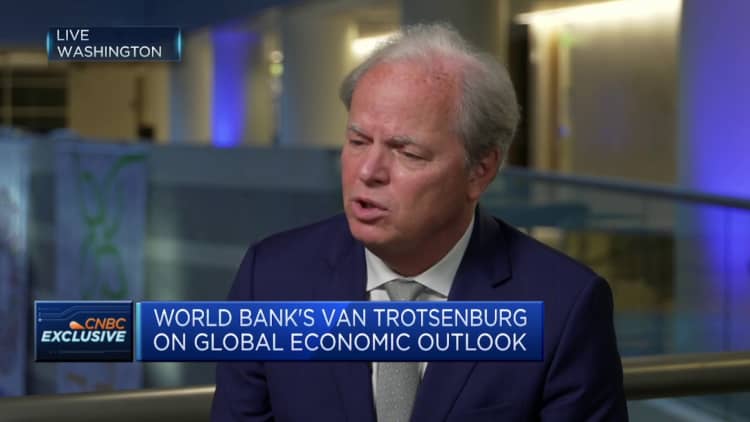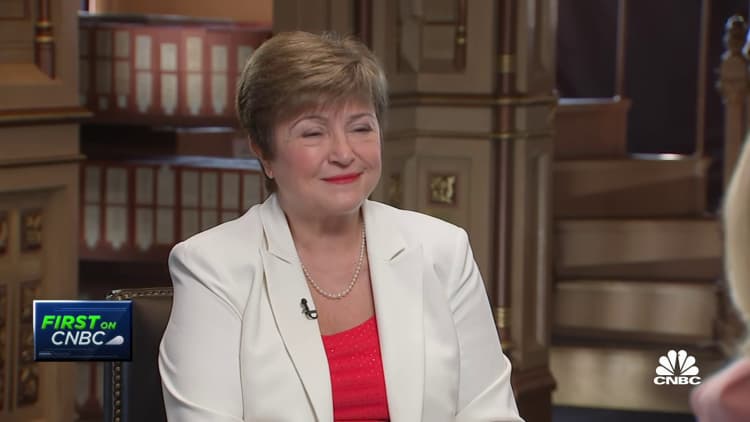IMF cuts global growth forecast for 2023, warns ‘worst is yet to come’
The International Monetary Fund predicts global growth will slow.
OLIVIER DOULIERY / Contributor / Getty Images
The International Monetary Fund predicts global growth will slow to 2.7% next year, 0.2 percentage points lower than its July forecast, and anticipates 2023 will feel like a recession for millions around the world.
Aside from the global financial crisis and the peak of the Covid-19 pandemic, this is “the weakest growth profile since 2001,” the IMF said in its World Economic Outlook published Tuesday. Its GDP estimate for this year remained steady at 3.2%, which was down from the 6% seen in 2021.
“The worst is yet to come, and for many people 2023 will feel like a recession,” the report said, echoing warnings from the United Nations, the World Bank and many global CEOs.
More than a third of the global economy will see two consecutive quarters of negative growth, while the three largest economies — the United States, the European Union and China — will continue to slow, the report said.
‘Volatile conditions’
In its report, the IMF laid out three major events currently hindering growth: Russia’s invasion of Ukraine, the cost-of-living crisis and China’s economic slowdown. Together, they create a “volatile” period economically, geopolitically and ecologically.

The war in Ukraine continues to “powerfully destabilize the global economy,” according to the report, with its impacts causing a “severe” energy crisis in Europe, along with destruction in Ukraine itself.
The price of natural gas has more than quadrupled since 2021, as Russia now delivers less than 20% of 2021 levels. Food prices have also been pushed up as a result of the conflict.
The IMF anticipates global inflation will peak in late 2022, increasing from 4.7% in 2021 to 8.8%, and that it will “remain elevated for longer than previously expected.”
Global inflation will likely decrease to 6.5% in 2023 and to 4.1% by 2024, according to the IMF forecast. The agency noted the tightening of monetary policy across the world to combat inflation and the “powerful appreciation” of the U.S. dollar against other currencies.

China’s “zero-Covid policy” — and its resulting lockdowns — continue to hamper its economy. Property makes up around one fifth of China’s economy, and as the market struggles the ramifications continue to be felt globally.
For emerging markets and developing economies, the shocks of 2022 will “re-open economic wounds that were only partially healed following the pandemic,” the report said.
World economy is ‘historically fragile’
The IMF also highlighted that the risk of monetary, fiscal, or financial policy “miscalibration” had “risen sharply,” while the world economy “remains historically fragile” and financial markets are “showing signs of stress.”
The report comes as analysts debate whether the Federal Reserve acted fast enough on inflation in the U.S. The European Central Bank, meanwhile, has recently entered positive rate territory for the first time since 2014 and the Bank of England has had to announce additional measures this week to stabilize the British economy and a unwanted surge in bond yields.
The report Tuesday suggested “front-loaded and aggressive monetary…
Read More: IMF cuts global growth forecast for 2023, warns ‘worst is yet to come’
